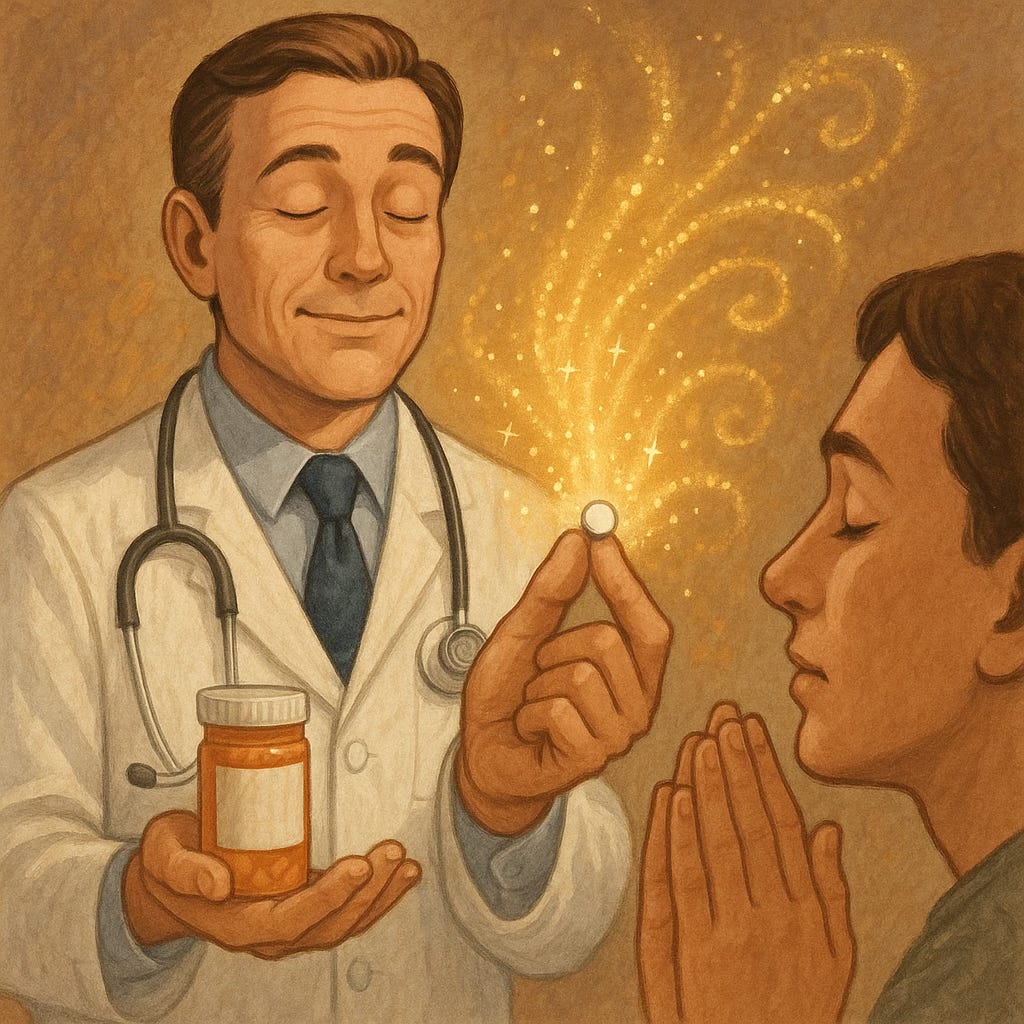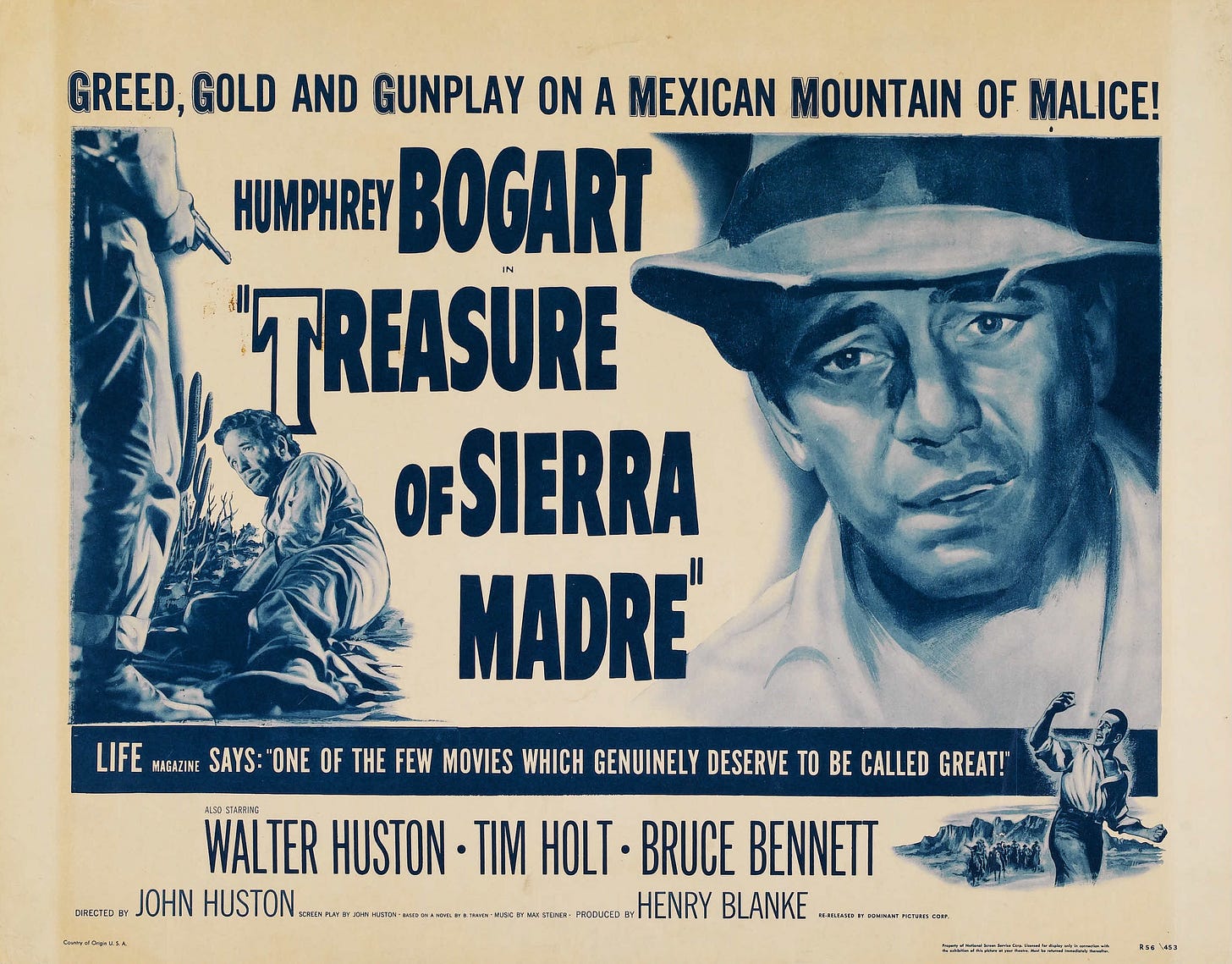We have all heard the term “mind over matter.” But what does it actually mean?
In science, we have the concept of the “placebo effect.” This is when you take something that is not supposed to work, and you make it work because through the power of belief.
For example, if I am a doctor—an authority figure—and I give you a sugar pill and tell you it is a powerful painkiller, you will likely believe me. For you, the pill becomes a powerful painkiller, because in effect, I have cast a spell on you.
But for a scientist, it's actually a pain in the neck! The scientist must now perform a double-blind study to hide the BELIEF, yours or the doctor’s, in the efficacy of the pill. This is because 10-20% of the population is subject to the “Placebo Effect,” in which a harmless sugar pill becomes effective through the power of suggestion. Mind over matter.
This makes the scientific method expensive, flawed at best, and inaccurate at worst. Just when you think it couldn't get any more complicated, we encounter the “Nocebo Effect.” In this case, the doctor gives you an actual powerful painkiller, but your pessimistic mind has already determined that it won’t work on YOU. Usually it does not—a self-fulfilling prophecy.
To sum this up, we can make something work that's not supposed to work, and we can make something NOT work that's supposed to work.
The third term is something I came up with myself. It was inspired by the title of Spike Lee's movie Mo’ Better Blues. Mo’ is a shortened form of the word “more,” so I coined the term “Mocebo Effect”—the belief that more of something is always better.
Now, in many cases, more is indeed better—up to a point. But I'm talking about the mindset where you just can't get enough, so you overindulge. This leads to the Mocebo Trap, where, not only do you get diminishing returns or results, but sometimes it's even counterproductive.
There is a saying, “The difference between elixer and poison is dosage.” Think of this: if you take your favorite meal and have it every day, not only will it cease to be your favorite meal at some point, but at a certain point, it will be off your menu. This is also true for sex, drugs, and rock and roll—we may as well add money to the list!
The apostle Paul was quoted as saying, “The love of money is the root of all kinds of evil.” You see it in films, like The Treasure of the Sierra Madre, and King Thorin’s ancestral gold in The Hobbit’s Battle of the Five Armies.
In the New Testament, Jesus is approached by a wealthy man and asked, “Rabbi, what must I do to enter the Kingdom of Heaven?” Jesus allegedly replied, “Give up your wealth.” The wealthy man immediately left and probably said something like, “I'll get back to you later about that!”
I believe what Jesus meant was to detach from money or the love of money. Money is just another form of energy, so don't hoard it and don't let your love of it drive all your decisions. If you pursue money all your life and lose your health in the process, what have you really gained?
And then there's the saying “You can't take it with you.” In Christian vernacular, it would be, “moderation in all things,” and in Buddhist vernacular, it would be “the Middle Way.”
The Mocebo Effect is so pervasive in our culture that I have to meditate and ask myself daily if I’ve fallen into it myself. The power of the mind can be your best friend or your worst enemy. So the next time you want MORE, ask yourself a simple question: are you heading into the Mocebo Trap?










I appreciate your insight and your willingness to try new approaches to health care. I too have been struggling with the response to my odor when on DMSO.
Two questions
1) my wife took DMSO for knee pain and her blood pressure shot up. This frightened her and she is no longer willing to take it. She is 83 and on the usual medications. The DMSO was applied topically. Do you think oral dosing would help? I questioned The Midwestern Doctor about it and he replied that he was not aware of any such effect.
2) I was interested in your comment that a certain percentage of people do not exhibit the placebo effect. Do you have references for that phenomenon?
Thanks for your consideration.
David Eldon Wood pHD and former Professor of Chemistry